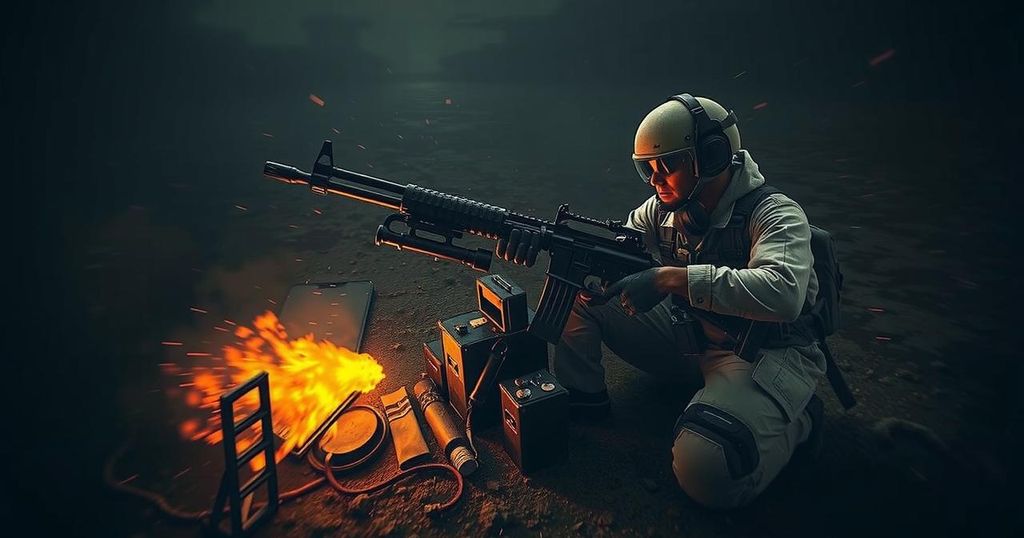Amnesty International reports that French defense systems on UAE-manufactured armored vehicles used by Sudan’s Rapid Support Forces likely violate the United Nations arms embargo. This situation has emerged amidst the ongoing civil war in Sudan, which began in April 2023 and has resulted in severe humanitarian crises, including extensive casualties and displacement.
A recent report by Amnesty International has raised serious concerns regarding potential violations of the United Nations arms embargo against Sudan. The organization claims that armored personnel carriers (APCs) manufactured in the United Arab Emirates, which are equipped with French defense systems, have been recovered by the Sudanese army amid ongoing civil conflict. The report highlights the use of these vehicles by the paramilitary Rapid Support Forces (RSF) during fierce clashes against the Sudanese Armed Forces (SAF). The civil war in Sudan, which erupted in April 2023 following escalating tensions between the RSF and SAF, has dire humanitarian consequences, resulting in over 20,000 fatalities and the displacement of approximately 11.6 million individuals. Amnesty International’s findings suggest that these military vehicles’ deployment in combat zones contradicts provisions of the U.N. arms embargo prohibiting weapon transfers to Sudan. Amnesty communicated that it confirmed the presence of several UAE-made Nimr Ajban APCs on the battlefield. Photographic evidence reviewed by the organization reveals these vehicles being captured or destroyed amidst the conflict. Manufactured by Edge Group in the UAE, these APCs are fitted with the Galix reactive defense system, produced by Lacroix Defense and KNDS France. This technology is designed to shield military vehicles from imminent threats through the deployment of countermeasures, including smoke projectiles. Agnès Callamard, Secretary General of Amnesty International, emphasized the seriousness of the situation, stating, “Our research shows that weaponry designed and manufactured in France is in active use on the battlefield in Sudan. The Galix System is being deployed by the RSF in this conflict, and any use in Darfur would be a clear breach of the U.N. arms embargo.” In response to these allegations, an Emirati government spokesperson rejected the claims, asserting that the UAE is a target of a disinformation campaign. This statement underscored their commitment to humanitarian efforts in Sudan and emphasized that they are not supplying armed groups involved in the conflict.
The conflict in Sudan stems from institutional tensions that erupted into a civil war in April 2023, primarily between the Sudanese Armed Forces and the Rapid Support Forces. As fighting intensified, there has been a troubling increase in human rights violations, which have captured international attention. The presence of military weaponry on the battlefield raises legal and ethical questions, particularly regarding international arms regulations set forth by the United Nations.
Amnesty International’s revelations regarding the presence of French defense systems on UAE-manufactured armored vehicles within Sudan pose significant questions surrounding the adherence to the U.N. arms embargo. The ongoing conflict has resulted in devastating humanitarian impacts, necessitating prompt international scrutiny and accountability for all parties involved in supplying arms to warring factions. The situation underscores the urgency for stricter enforcement of international arms regulations to prevent further escalation and military engagement in Sudan.
Original Source: apnews.com





